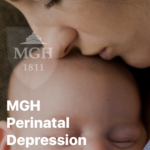You get pregnant. You have a baby. You want to do whatever you can to care for your baby should anything happen to you. So you apply for life insurance. All of this makes total sense, right?
What many women are surprised to discover is that their history of well-managed depression or anxiety may pose an obstacle to or may increase the cost of obtaining life or disability insurance. Although this website makes it look like insurance companies take into consideration the severity of illness, my experience from filling out my patients’ insurance forms is that any sort of mental illness raises a red flag. And it is perfectly legal for an insurance company to deny coverage to someone with a history of anxiety or depression.
As we are now moving forward with universal screening for depression and anxiety in pregnant and postpartum women, an article published in the New York Times raises concerns that identifying mental health issues in this population may jeopardize women’s ability to get life and disability insurance.
The article tells the story of Rebecca Fox Starr:
When she and her husband were childless first-time home buyers, they bought life insurance. Now, as the parents of two children, they need more.
It will probably cost them more this time, if they can get insurance at all. After the birth of their second child in 2013, Ms. Fox Starr suffered from postpartum depression and was eventually hospitalized. Now, she finds herself in the opaque world of actuarial taint. “It is scary to think that I am less insurable when I am likely someone who needs life insurance more than those without mental health issues,” she said.
So what are we supposed to do here? Lately we have been feeling more hopeful about the capacity of our society and the medical profession to recognize and take care of the mental health needs of this vulnerable population. However, insurers’ unwillingness to provide coverage to women who suffer from perinatal mood and anxiety disorders feels like a huge obstacle and will serve to further stigmatize women in this situation.
Will women avoid being screened under these circumstances? Will they avoid treatment? Will they be forced to lie to their insurance companies? All of these are horrible, and often untenable, options. Given the implications of untreated mental illness in the mother and its potential to affect the entire family, we cannot afford to take a Don’t Ask, Don’t Tell approach to the issue of maternal mental health.
Ruta Nonacs, MD PhD
An Insurance Penalty From Postpartum Depression (New York Times)








Leave A Comment